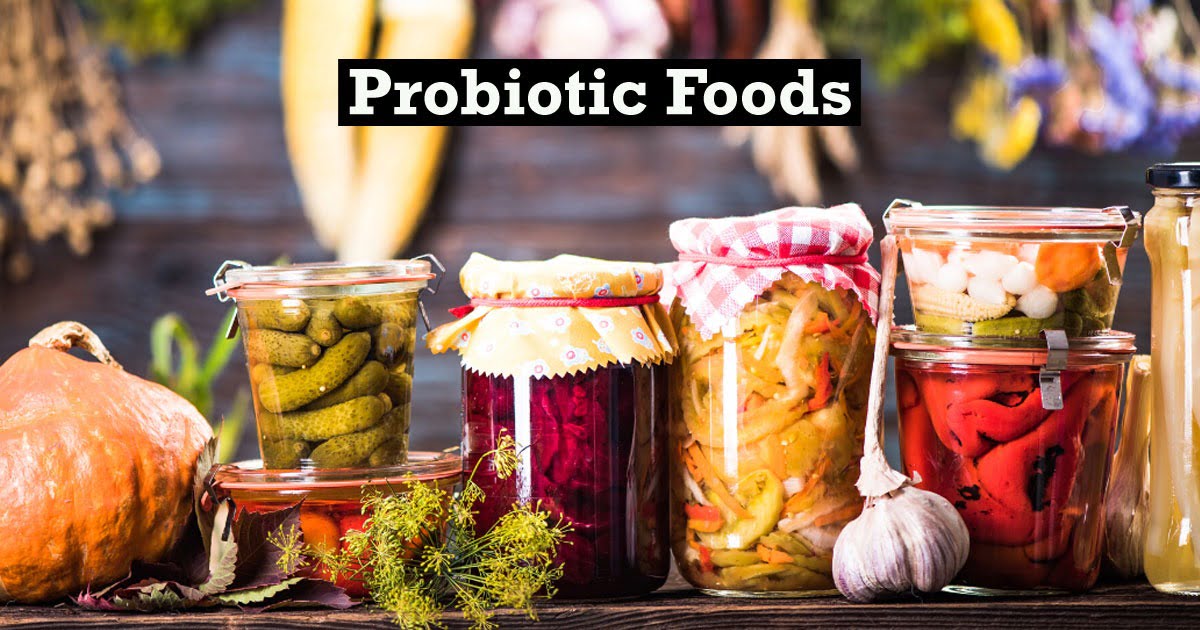Studies have shown that the balance or imbalance of bacteria in your digestive system is responsible for your overall health and disease. Probiotics are live microorganisms that promote a healthy balance of gut bacteria and have been linked to a wide range of health benefits. Having the right balance of bugs may keep us well in the long term. Probiotics, the friendly bacteria, cannot only help support digestive health but may also be involved with mental health and disease prevention as well. They help treat certain gastrointestinal conditions, including colon cancer, IBS, constipation, diarrhoea and lactose intolerance. Probiotic foods may give your immune system a boost and hinder the growth of harmful gut bacteria. No doubt, we can take probiotics from supplements but when it comes to potency, probiotic foods are far more potent than probiotic supplements. This is because probiotic foods naturally contain more functional ‘superfood’ benefits than supplements
Let’s take a look at a list of 11 probiotic foods that are super healthy-
ALSO READ- Prevent Constipation: Best Foods To Get Rid Of Constipation
Probiotic Foods To Improve Digestion & Boost Immunity
Yoghurt
Yoghurt contains nearly every nutrient that your body needs. Eating it regularly may boost several aspects of your health. Being a fermented food, it naturally contains lots of probiotic cultures that strengthen the digestive tract. But before purchasing, check the label and ensure your yoghurt contains effective probiotics. Always go for one that contains live, active cultures.
Yoghurt which contains probiotics may boost digestive health by reducing the symptoms of common gastrointestinal disorders, such as bloating, diarrhoea and constipation. It also improves immune function by increasing cytokine-producing cells in the intestines.
Idli
Idli is a healthy breakfast option as it contains a good amount of intestinal bacteria and is low in calories. It is eaten with chutneys which also have some fermented ingredients. The fermentation process creates the perfect environment for the growth of good bacteria. By undergoing fermentation, the bio-availability of its minerals increases, helping the body in better digestion.
In fact, most dishes in South Indian cuisine are rich sources of probiotics like buttermilk, dosa, appam, dhokla, uttapam. They are all made by fermenting rice and lentils, which makes them high in live cultures of the good bacteria.
ALSO READ: Milind Soman Diet Plan- Prefers ‘Ghar Ka Khana’ To Be Superfit
Kimchi
Kimchi, an Asian fermented vegetable probiotic food, is made by fermenting cabbage, radishes, and scallions with seasonings such as sugar, salt, onions, garlic, ginger, and chilli peppers. You may stir a spoonful of kimchi into your soups, salads, or even pasta dishes just before serving.
The unique strains of good bacteria found in kimchi will not only heal your gut but may also help you stay fit and fine. Kimchi’s digestive benefits carry over to your immune system, too. Kimchi also promotes weight loss, fights inflammation, and even slows the ageing process.
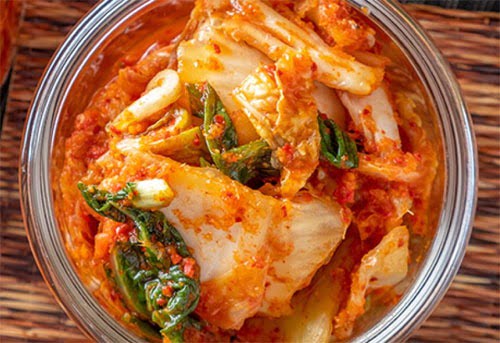
Indian Cheese (Paneer)
One of the best and well-known examples of Indian probiotics food, Indian cheese, or paneer, is a rich source of probiotics. No doubt, most types of cheese are fermented but it does not mean that all of them contain probiotics. Paneer helps in keeping the body’s digestion and immunity intact as it happens to be a great choice of probiotics.
This rich source of protein contains magnesium also which can prevent constipation because of its laxative effect. Paneer is light on the stomach and easy to digest. However, uncooked Paneer or large amounts of it can cause bloating and slight indigestion problems.
Green Peas
According to a Japanese study, green peas may contain the probiotic leuconostoc mesenteroides to help foster a favourable gut balance. Gut bacteria need fibre to flourish and green peas are full of soluble and insoluble fibre that help keep your system in balance. This good bacteria in green peas may also raise the level of antibodies in the immune system. Thus peas may be able to help fight off infections and colds.
Make sure not to cook your green peas. Just add them raw to your salad or eat them as a snack. You may also try raw green pea and almond dip on crackers.
ALSO READ- Immune Boosting Superfoods To Fight Off The Coronavirus (COVID-19)
Kefir
Kefir is a combination of bacteria and yeast fermentations. The probiotics and yeast in kefir have been shown to restore balance in the gut, thereby improving digestion, helping the body alleviate constipation, among other health benefits. The probiotic contents of kefir can modulate the immune system to suppress infections from viruses
It is a cultured, fermented milk drink that is similar to yoghurt – but thinner in consistency, making it more of a drink. You can try this tangy drink alone or pair it with fresh fruit, or add it to a smoothie. Kefir is also good for those who are lactose intolerant.
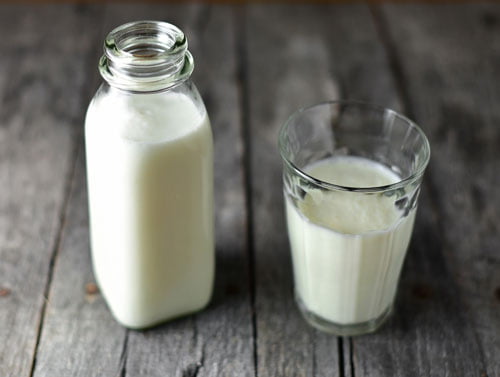
Buttermilk
Traditional buttermilk, a fermented dairy drink is simply the leftover liquid from making butter. It is a good source of probiotics, thanks to the live cultures added to ferment the milk sugars. The live cultures of lactic acid bacteria present in buttermilk aid in maintaining the balance between harmful and healthy bacteria in the gut microbiome, thereby supporting your immune system.
It aids in digestion and helps clear your stomach because of the acid in it. Regular consumption of buttermilk helps reduce the onset of several stomach ailments like irritable bowel syndrome, stomach infections, irregular bowel movements, lactose intolerance, and colon cancer.
ALSO READ- Boost Immunity In Winters: Best Flu-Fighting Foods
Pickles
Fermented pickles act like probiotics which means they contain beneficial strains of bacteria. If consumed often, it can contribute to protecting the body’s microbiome and supporting the growth of healthful bacteria in the gut.
Fermented pickles offer more health benefits than other pickles. Note that pickles made with vinegar do not contain live probiotics. So, always look for brands that have no vinegar and no sugar added. Naturally fermented pickles like pickled cucumbers are a great source of healthy probiotic bacteria that may improve digestive health.
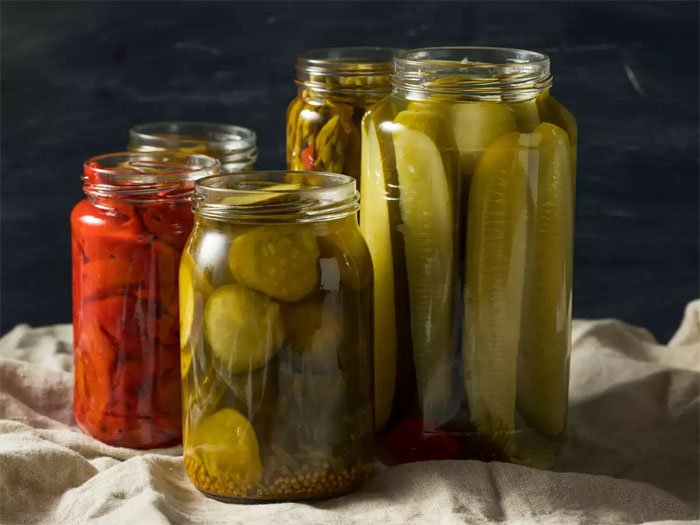
Kombucha
Kombucha is a fermented, lightly effervescent sweetened black or green tea drink. To prepare this, yeasts and bacteria are fermented with sweetened tea which results in a slightly carbonated, probiotic-rich beverage.
This drink is full of antioxidants and lactic-acid bacteria that boost immune function can help with digestion, bloating and a whole range of ghastly gut-related issues. Even weight loss!
ALSO READ- Chai Masala Powder Recipe- Increase Immunity & Fight Flu
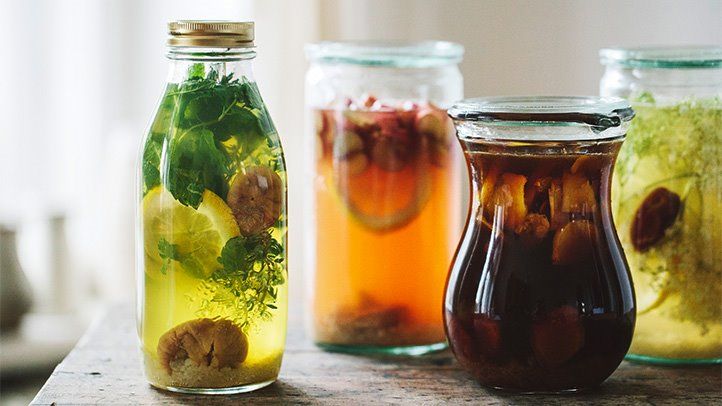
Cheese
Cheeses that are either aged or made from raw, unpasteurized milk are excellent carriers for probiotics. It’s prepared by adding the lactic acid bacteria to milk. Although most kinds of cheeses are prepared via fermentation, not all of them are probiotic. So, if you want to receive any probiotic benefits, always look for the words “raw”, “probiotic,” or “made from raw milk” on the label while purchasing. Also, make sure, no cooking or melting if you want to preserve the probiotic benefits.
Mozzarella, cheddar, gruyere, gouda, parmesan, and swiss are varieties that retain their friendly bacteria. Gouda, in particular, is an excellent carrier of probiotics.
Although probiotics are essential for everyone. But if you are the one who is facing digestive irregularity or your sugar cravings are out of control or metabolism is a bit slow or you’ve taken an antibiotic, (even if it was a long time ago) then you are highly in need of probiotics.
